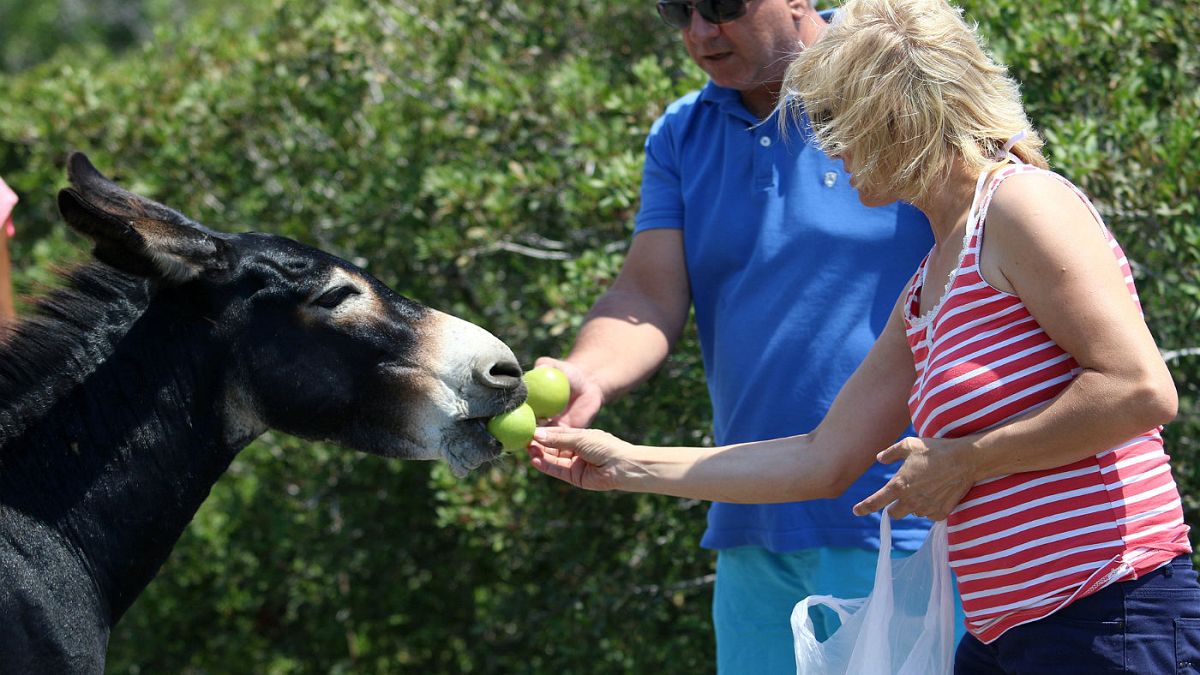Tourists love them but some locals in northeast Cyprus think they are a nuisance and a road safety menace!
They have fended for themselves for decades – with a little help from humans passing through.
And wild donkeys in northeast Cyprus are thriving!
Experts estimate there must be about 2,000 today, roaming the hills, sand dunes and country roads of the remote Karpas Peninsula.
A previous field study in 2003 put the number at 800-900, covering an area of 132 sq km.
Orphaned by war, wild donkeys make a comeback in #Cyprushttps://t.co/50Vn1lGVWa
— George Kyris (@GeorgeKyris) 22 août 2017
“They are a very big attraction for the tourists, for local and international tourists,” said biologist and wilderness guide Tugberk Emirzade.
“They are very cute animals. They are very friendly and they are interesting. They have interesting history on the island, and they should be utilised in tourism.”
Greek-Cypriot farmers once owned donkeys in the area but abandoned them when fleeing the Turkish invasion, triggered by a brief Greek-inspired coup, that divided Cyprus in 1974.
The wild donkeys of the Karpaz are very friendly, so long as they think you might have food for them. #northcyprus#holiday#trncpic.twitter.com/Z4ToPkFNvB
— SightsofNorthCyprus (@NCyprusSights) 4 décembre 2016
The breakaway Turkish Cypriot state is recognised only by Ankara.
The Greek Cypriot government is internationally recognised as representing the whole island, and represents Cyprus in the European Union.
The donkeys’ domain, on the easternmost point of Cyprus, is a focal point for pilgrims among the island’s Greek and Turkish Cypriot population because of a monastery dedicated to the Apostle Andrew, one of Jesus’s first followers.
The donkeys eagerly await visitors. Cars mean people, and people mean food.
Drivers frequently find packs on the meandering narrow roads, refusing to budge until the windows are wound down. Ears back and snouts pulled into a grin, the donkeys stick in their muzzles in the hope of a reward.
But while the animals are loved by tourists, they are loathed by some locals who say they damage crops and make roads dangerous, causing traffic accidents.
Wilderness guide Emirzade worries about the impact of such a large population of donkeys in the area, home to some unique endemic plant species.
He says further research and management of the donkey population is required, possibly through castration, sending some donkeys to farms, using them in environmental education, as well as in tourism.
with Reuters
